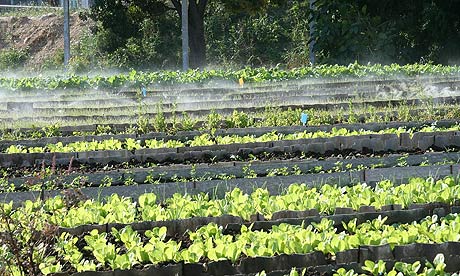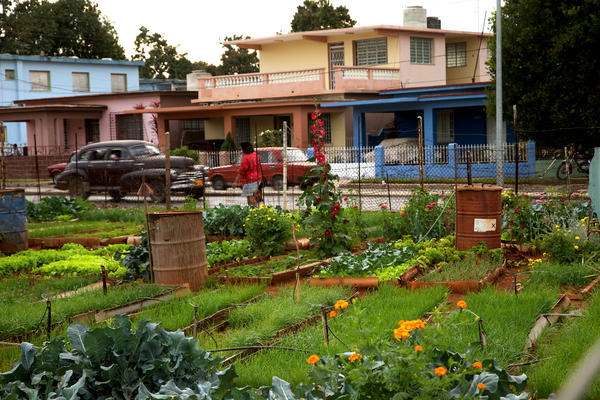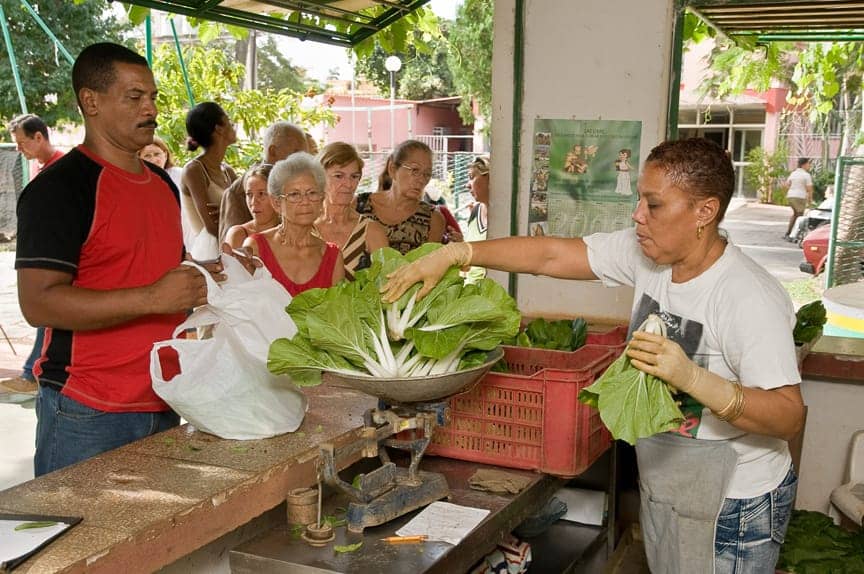Latin America
Related: About this forumCuba's warming relations with the US may undermine its agroecological city farms
Cuba's warming relations with the US may undermine its agroecological city farms
Julia Wright & Emily Morris
27th June 2015

[font size=1]
Lettuce on an Organic Farm in Havana, Cuba.
Photo: David Schroeder via Flickr (CC BY-NC-ND).
[/font]
Cuba is a global exemplar of organic, agroecological farming, taking place on broad swathes of land in and around its cities, write Julia Wright & Emily Morris. These farms cover 14% of the country's agricultural land, employ 350,000 people, and produce half the country's fruit and vegetables. But can they survive exposure to US agribusiness?
For more than 20 years, Cuba has been developing a sophisticated urban and suburban food system, producing healthy food, improving the environment and providing employment. But how will the sector survive if the economy opens up to US agricultural and industrial trade and investment?
The first urban farms emerged spontaneously in Cuba out of the hardships of the early 1990s. People in towns and cities began to cultivate urban waste land and keep small livestock as a coping strategy.
Possibly the first co-ordinated effort was the Santa Fe project in the north-west of Havana City, initiated in 1991. Taking advantage of the available resources within the community, empty urban space was reclaimed for food production to help overcome irregular and inadequate food supplies.
More:
http://www.theecologist.org/News/news_analysis/2919056/cubas_warming_relations_with_the_us_may_undermine_its_agroecological_city_farms.html
Environment & Energy:
http://www.democraticunderground.com/112787564
[center]








 [/center]
[/center]
Joe Shlabotnik
(5,604 posts)On an ideological level, this goes back to Che, who disagreed with USSR about building hubs for agriculture, when he and Cienfuegos correctly observed that peasants should have the means in small collectives to harvest and process their goods to then move on to the centralized economy, after feeding themselves. It was an area where Che's Maoist and anarcho-socialist tendencies seeped through. And he was right.
Judi Lynn
(160,601 posts)who go there to study it.
Hope they can maintain their momentum.
Thank you for your interesting comments.
Peace Patriot
(24,010 posts)Thank you for posting them!
![]()
![]()
![]()
![]()
![]()
Judi Lynn
(160,601 posts)Quite a far cry from the pathetic drivel we hear from propagandists, with their claims the people are "prisoners" of the government.
Who would want to spend his/her life trying to convince U.S. Americans that people in leftist-led countries are miserable, anyway?
It is also interesting that a nation-wide effort to produce their own food could get this kind of result.
As we know, ALL islands, including Hawaii, etc. always have to depend on a large amount of imported food, when they have significant populations. It also applies to former colonial countries, and countries controlled by foreign interests. The Caribbean countries, and certain African countries have always been used for growing products for European, US dinner tables, or truly non-essential things, like sugar, tobacco, chocolate, coffee, etc.
Looks like Cuba's doing just fine, all things considered.
Thank you for your kind comments.
Response to Judi Lynn (Original post)
hack89 This message was self-deleted by its author.